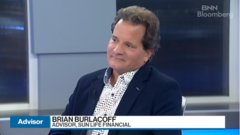Feb 16, 2018
Norman Levine's Top Picks: Feb. 16, 2018
BNN Bloomberg
Norman Levine, managing director at Portfolio Management Corp
Focus: North American large caps
_______________________________________________________________
MARKET OUTLOOK
In the past two weeks we experienced a correction but it was the non-FAANG stocks that bore the brunt of it, so they and some other stocks continue to be quite expensive. Markets, however, can be irrational for some time before reality sets in.
We’re still positive on the U.S. market generally, as that country’s economy continues to lead the world recovery. But we’d like to see better valuations before committing further funds there.
Canada has missed a decade of advancing markets. Due to the makeup of our market, which has an overexposure to commodity and especially energy stocks, we’re back to where we were in 2007. Obviously, that has hurt Canadian investors who aren’t geographically diversified outside Canada.
We’re looking for companies in Canada and outside the U.S., which have decent valuations but also have international exposure.
Interest rates around the world are increasing from near-zero (actually negative in some countries) to more normal rates. This will cause pain for stocks as bond yields approach and possibly surpass dividend yields at some point. Rising rates are indicative of improving economies, which is good for stocks, but only until bonds become too competitive and draw too much money from stocks to them. We’re not there yet, but at some point bonds will become more attractive.
TOP PICKS
UNI-SELECT (UNS.TO)
Purchased on Feb. 13 at $26.08.
Uni-Select is a wholesale distributor of automotive aftermarket parts and paints. It has leading market positions in its three key markets: Canadian and U.K. aftermarket auto parts and U.S. collision paint repair.
The stock had a great start to 2017, but then suffered from two events. First, it’s suffered from a transition away from one if its major paint suppliers in the U.S. Second, its paint operations were widely affected by the hurricanes in Florida and Texas. Investors have also been fretting about Amazon becoming a factor in aftermarket auto parts. For Uni-Select that fear is misplaced, as it sells exclusively to auto repair shops, where broad inventory and speedy delivery are paramount, as opposed to do-it-yourselfers, who are Amazon’s customers. Investors have also questioned its U.K. acquisition, as its margins have suffered lately. This has provided an opportunity and we believe that margin expansion through operational improvements will be the key to this stock’s success.
It has a 1.4-per-cent yield. Due to the debt it incurred (which it hopes to repay quickly) in its U.K. acquisition, this stock is not suitable for very conservative investors.
CELESTICA (CLS.TO)
Purchased on Jan. 22 at $13.95.
Celestica is an EMS (electronics manufacturing services) company. It’s a very cheap stock, trading at 8.5 times earnings versus its peers which trade between 10 and 20 times. It also has a high-teens free cash flow yield. One third of its market cap is in cash.
Though Celestica is in the EMS space, which is very competitive, the company has had very stable returns on invested capital (between 11 and 14 per cent from 2010 to 2016). It has also retired 38 per cent of its shares in the last seven years. The reason for the current price being an opportunity is the company recently took its quarterly guidance numbers down.
The EMS business is not very predictable, certainly not on a quarter-by-quarter basis, but the annual returns on capital have been very stable. The stock should trade at US$15 versus US$11 today. Risks include a continued reduction in guidance, a bad acquisition and revenue concentration (19 per cent with Cisco). Because Celestica does not pay a dividend, it isn’t suitable for conservative and yield investors.
LANXESS (LXS.XE)
Purchased on Jan. 22 at 74 euros.
Lanxess is a high quality German-based specialty chemicals maker that was spun out of Bayer in 2004. It trades at 6.8 times enterprise value/EBITDA.
Its new CEO (who was formerly its CFO) is looking to make the company a specialty chemicals powerhouse by 2020. They have made many moves under his leadership, including selling 50 per cent of a large commodity business to Saudi Aramco and using the proceeds to pay down debt. In 2017 they purchased Chemtura in the U.S., making Lanxess one of the largest players in the flame retardants and lubricant additives business in the world.
Lanxess should be able to grow EBITDA by around 10 per cent annually over the next number of years as they have in the last few. In addition to acquisitions, the CEO is undertaking a second cost-cutting program which should be completed by the end of 2019. The stock currently trades at 68 euros and is most likely worth around 100 euros (8 times EV/EBITDA plus cash build about 18 months out). The dividend yield is 1.7 per cent.
| DISCLOSURE | PERSONAL | FAMILY | PORTFOLIO/FUND |
|---|---|---|---|
| UNS | Y | Y | Y |
| CLS | Y | Y | Y |
| LXS | Y | Y | Y |
PAST PICKS: FEB. 10, 2017
ARC RESOURCES (ARX.TO)
- Then: $20.74
- Now: $12.72
- Return: -38.66%
- Total return: -36.43%
CARA OPERATIONS (CARA.TO)
- Then: $26.03
- Now: $25.30
- Return: -2.80%
- Total return: -1.17%
KONE (KNEBV.HE)
- Then: €40.52
- Now: €45.28
- Return: 11.74%
- Total return: 16.02%
Total return average: -7.19%
| DISCLOSURE | PERSONAL | FAMILY | PORTFOLIO/FUND |
|---|---|---|---|
| ARX | Y | Y | Y |
| CARA | Y | Y | Y |
| KNEBV | Y | Y | Y |
TWITTER: @levinepmc
WEBSITE: www.portfoliomanagement.ca











